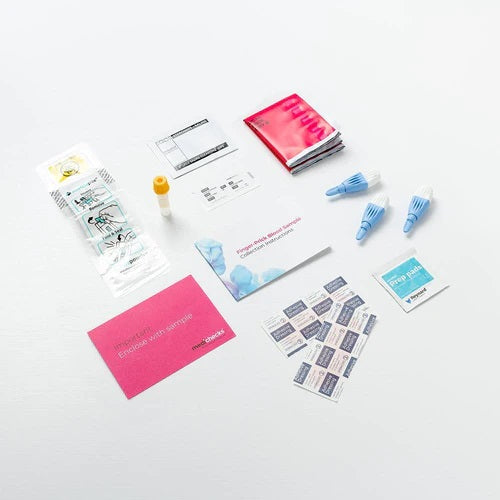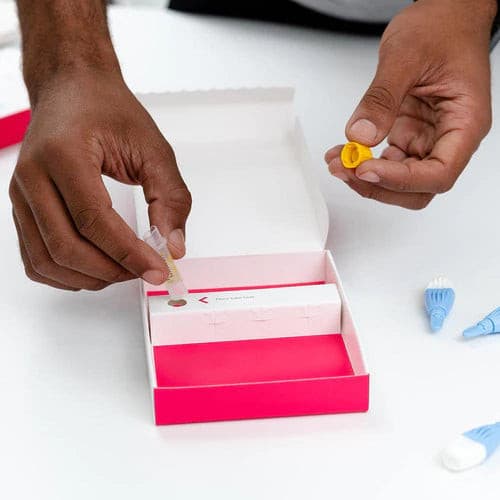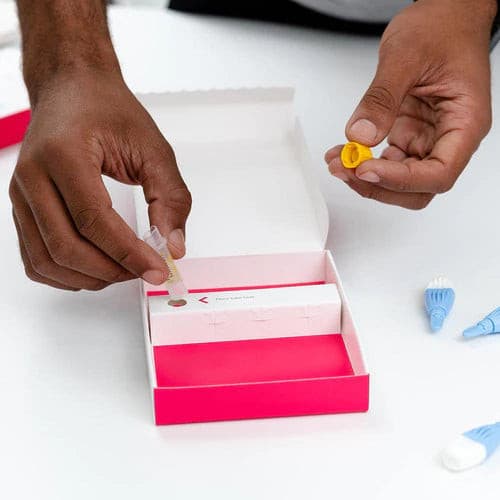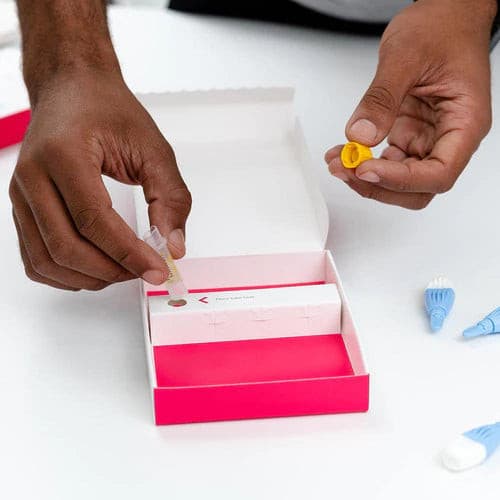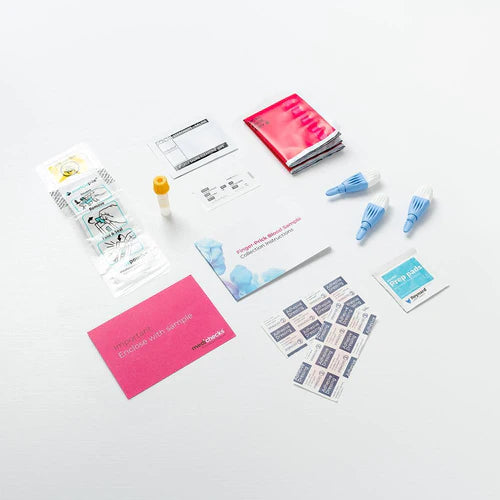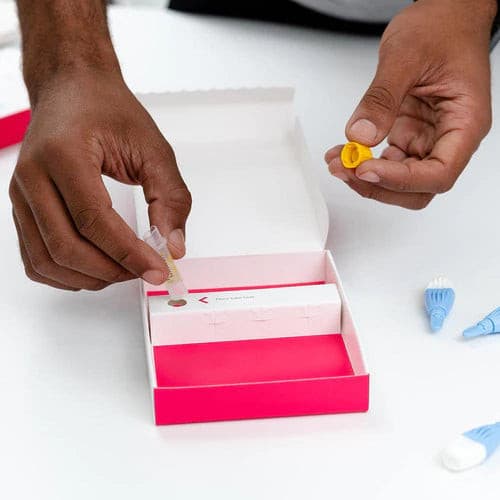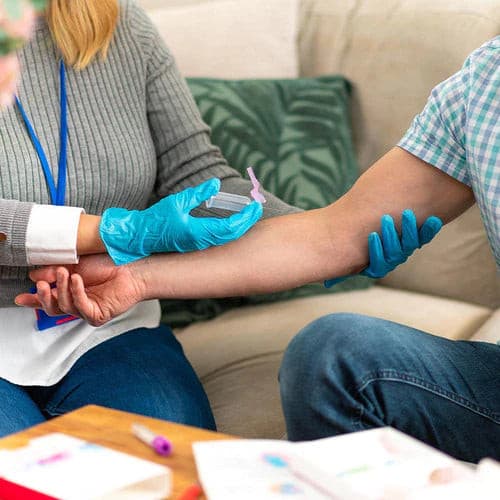
About Description
- affects normal ovarian function
- blood test for Polycystic Ovary Syndrome (PCOS)
Why People Choose Us

Quick & Easy
No appointment or long waiting times

Discreet Packaging
Plain packaging with no medical stamps or marks

Confidential Service
Your information stays with us and private payment

UK Medication
Dispensed by registered UK pharmacists
Hormones (4 Biomarker)
Every bodily function, including development, metabolism, reproduction, and sleep cycles, is controlled by hormones.
Your mood and energy levels, as well as your fertility and libido, can all be negatively impacted by even a slight hormonal imbalance. Chemical messengers known as hormones are produced in your glands and delivered into your bloodstream.
Your body receives instructions from them on how to control your appetite, growth, mood, and reproduction. In general, they maintain the body's equilibrium and functionality.
Hormone imbalances are frequently treated with hormone replacement therapy or by altering one's lifestyle. Throughout the day and for women during the menstrual cycle, hormone levels change.
The pituitary gland produces the hormone follicle stimulating hormone (FSH), which is crucial for both men and women in the development of sperm and eggs.
FSH increases the growth of follicles within the ovaries in the first half of the menstrual cycle in women.
Oestradiol levels will rise thanks to each of these follicles. Follicle stimulating hormone levels fall throughout the second half of the menstrual cycle as one follicle becomes dominant and is discharged by the ovary (ovulation).
In men, FSH stimulates immature sperm cells to mature into sperm by acting on the seminiferous tubules of the testicles.
The pituitary gland produces the luteinizing hormone (LH), which is crucial for both male and female reproduction. It controls the menstrual cycle in women and peaks just before ovulation. It increases testosterone production in men.
A hormone called testosterone is responsible for male features. It plays a part in controlling bone mass, fat distribution, muscular mass, strength, the creation of red blood cells, and the production of sperm in men.
It also helps to regulate sex drive. Men's testicles and, to a much lesser extent, women's ovaries both produce testosterone. Although lower than normal amounts of testosterone can occur at any age and can result in low libido, erectile dysfunction, difficulties gaining and retaining muscular mass, and lack of energy, testosterone levels in males naturally fall after the age of 30.
Even though testosterone levels in women are significantly lower than in men, it is still vital for the same reasons—it affects libido, how fat and muscle are distributed, and how red blood cells are formed.
Because reference ranges are dependent on the population being tested, they will all somewhat vary between laboratories. 95% of men will fall inside the usual range, which has been determined.
We follow the British Society for Sexual Medicine's (BSSM) recommendations for greater consistency, which state that low testosterone can be diagnosed when levels are consistently below the reference range and that levels below 12 nmol/L may also be considered low, particularly in men who also experience symptoms of low testosterone or who have low levels of free testosterone.
Free Androgen Index
The quantity of testosterone that is free (unbound) in the bloodstream is calculated using the free androgen index (FAI).
The majority of testosterone is protein-bound to albumin and the sex hormone-binding globulin, making it unavailable to interact with cells in the body.
The FAI is a formula that measures the quantity of testosterone that is available to act on the body's tissues and is based on the ratio of testosterone to SHBG.
Women can predict the likelihood of polycystic ovarian syndrome using the free androgen index.
Free testosterone in men provides a more accurate representation of testosterone levels.
Proteins (1 Biomarker)
Proteins are essential for muscle growth and the operation of cells and tissues.
Blood proteins are measured to assist in the diagnosis of various illnesses, such as liver or kidney disease. It is common practice to analyse proteins to determine how much of a specific hormone is bound to a protein or free and thus available to your cells.
Proteins also transport other chemicals, such as hormones, throughout the blood. Dehydration is a common cause of elevated proteins, but it can also be a sign of other health issues.
A significant protein deficiency may be a sign of malnutrition or malabsorption.
Most sex hormones, including testosterone, oestrogen, and dihydrotestosterone (DHT), are bound to Sex Hormone Binding Globulin (SHBG), rendering them inactive in your cells.
The amount of free or unbound hormones, which are biologically active and available for usage, can be determined by measuring the level of SHBG in your blood.
Easy Steps for your Medicine

Complete a consultation.
With complete privacy and confidentiality your form is checked by a pharmacist independent prescriber.
Choose your treatment.
From the list approved by the prescriber, choose your preferred treatment and then wait for it to be dispensed by UK Meds online pharmacy.
Receive your delivery
With next day delivery options available, you can have your treatment sent out to you discreetly within hours.Our Happy Customers
Rated Us for our Service Excellence
 Dispensed by Regulated UK Pharmacists
Dispensed by Regulated UK Pharmacists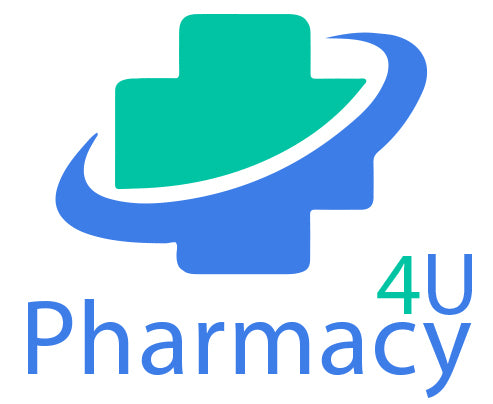

 How it works
How it works Help
Help Account
Account
 Basket
Basket













